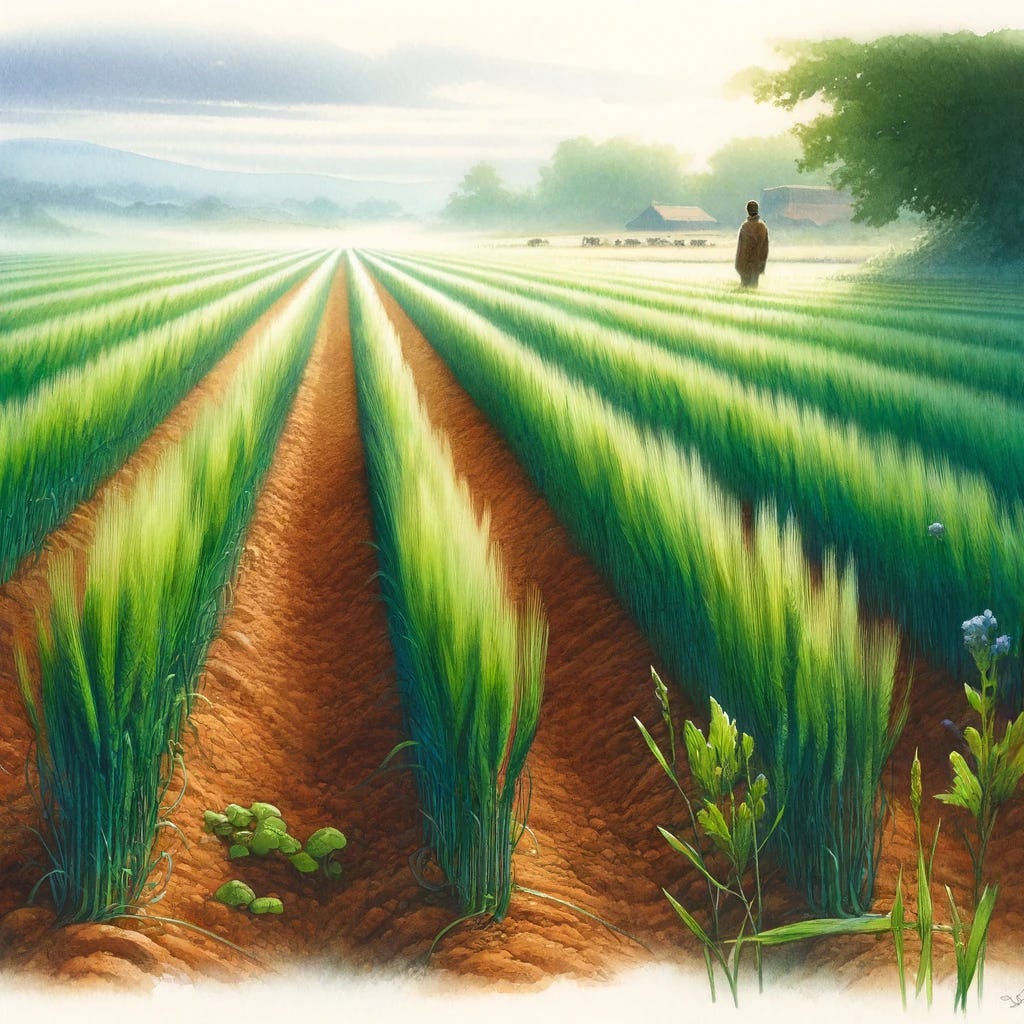Prehistoric Romance
History. 800 words, 4 minute read. With Claude Sonnet.
The clay tablet lay cool against Harika's palms, its surface etched with marks that looked like bird tracks after rain. Her fingertips traced each wedge-shaped impression, feeling how they danced across the hardened surface in careful rows, like the stone circles the settled ones built to mark the seasons.
A year earlier, when the wild roses bloomed and the air tasted of spring honey, her people had followed the herds back to the great stone settlement. The massive circular temples rose from the hills like mountains shaped by giant hands, their weathered surfaces already ancient to Harika's fourteen summers.
As her people approached, the scent of fresh-baked bread mingled with the smoke of cooking fires. Harika's mother clicked her tongue at the sight of the farmers' permanent hearths. "See how they chain fire itself?" she murmured, adjusting the pack of dried morels on her shoulder. "The spirits must weep to be trapped in stone."
But Harika's eyes were drawn to the neat rows of planted barley, green shoots rising from dark soil in perfect lines. Her people knew how to read the random patterns of nature – where mushrooms would fruit, which way the herds would move. These farmers had learned to write their will upon the earth itself.
She was studying their strange circular temples when a shadow fell across her path. The farmer boy stood like a young oak, all angles and quiet strength, his eyes the deep brown of turned soil.
"The stones speak to those who know how to listen," he said, gesturing to the carved pillars. "I am Zeki."
Harika lifted her chin. "Stones are silent in my people's lands. I am Harika, daughter of the wind."
"Then let me show you how they whisper." Zeki glanced toward the trading crowds, then motioned toward a grove of almond trees. "Unless you fear what settled things might say?"
The challenge in his voice made her smile. She followed him through the young trees, their branches still dressed in spring flowers. In a small clearing, Zeki knelt and smoothed a patch of earth.
"Watch," he said, taking a stick. His hand moved with practiced grace, leaving angular marks in the dirt. "This is how we trap the sun's journey in clay. This mark means 'star.' This one, 'water.'"
Harika crouched beside him, her trader's beads clicking softly. "You would cage words like birds?"
"We free them," Zeki corrected, adding another mark. "See? Now these thoughts can fly to anyone who knows the signs, even after we are dust."
They spent the afternoon trading knowledge like their peoples traded goods. Harika showed him how to spot the mushrooms that glowed in darkness, while he taught her to draw the symbol for her name. When the shadows lengthened, distant voices carried through the trees.
"The walls we build keep more than wolves at bay," Zeki said, his voice heavy with meaning. "There is word of raiders in the hills. Your people could shelter here, learn our ways."
Harika touched the marks she'd drawn, feeling the soil's coolness. "My people are born of distance," she said. "We cannot take root like your grain. But we return with each spring's warming." She pressed her hand to his. "Look for me when the almonds bloom again."
The seasons turned their wheel. When Harika's people returned, they found the mighty walls standing guard over emptiness. Scattered grain spoke of hasty flight, and black scars marred the temple stones. While the elders read the signs of violence in trampled fields, Harika ran to the almond grove.
The trees had bloomed early, their fallen petals like snow in spring. In their clearing, wrapped in oiled leather and nestled in a hollow tree, she found the tablet. Her fingers recognized Zeki's marks, though their meaning remained locked in clay.
That evening, as her people debated which way the farmers had fled, Harika sat apart, the tablet cradled in her lap. The elders said carrying such a weight was foolish – they were people of wind and weather, not stone and scratch-marks, and nobody in the tribe could read it regardless. But Harika tucked it carefully between her fire-starting flint and bone needles, feeling its solid presence against her hip as she walked.
At the settlement's edge, she gazed at the great stone circles. They stood eternal as the mountains, their shadows stretching toward her like fingers. Somewhere, Zeki's people carried their knowledge with them, perhaps learning that even walls must sometimes bend to the wind. Harika touched the tablet through her bag, feeling its edges press against her skin. She knew then that she would learn to read.



